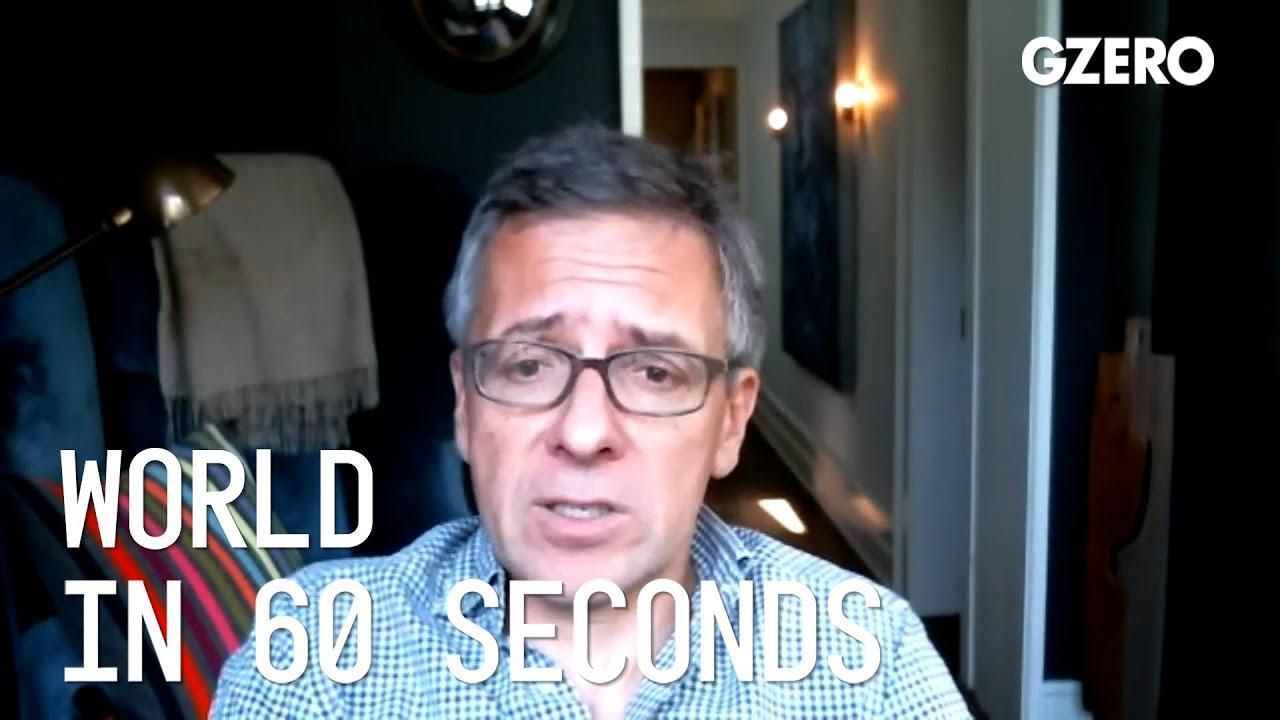Ian Bremmer shares his insights on global politics this week on World In :60.
With the US speeding up military aid to Ukraine, can the West coax an end to the war soon?
I don't think so and I'm not sure that's related to how much military aid the West is providing Ukraine. I do think we're getting closer to a frozen conflict because the Russians aren't doing a general mobilization. It'd be very unpopular in Russia for Putin to manage that, which means that their forces are nearly spent. They can't take more territory than the Donbas max with what they have right now. So beyond that and the Ukrainians with some counter offensives, which also will be pretty limited as we're starting to see happening in Kherson in the south, that's probably where we are for the coming months, but that's freezing the conflict near term. That's not an end to the war. That's not, the Russians and Ukrainians are happy with where they are, that you get ceasefire negotiations that could create peace, especially with the Russians likely annexing part of Ukraine. This is I think a war for the duration for a much longer period of time. It's also confrontation between Russia and NATO that so far hasn't been very sharp, but is likely to play out more sharply over time with disinformation attacks and espionage and cyber and all the rest.
Is China still planning years of zero-COVID strategy?
Maybe not years, but definitely a year. I think until the Chinese government is able to get their elderly population near fully vaccinated, they're not close to that yet, and or get therapeutics that work at scale, they need zero-COVID. And let's keep in mind that this disease, this virus is still morphing. It's making it much harder for new vaccines to be developed in the West. China's vaccines aren't as effective. And of course there's always the possibility that a new variant shows up that is more lethal than what we've had through the Omicron variants. And that would be incredibly dangerous for China and would make them maintain zero-COVID for much longer. So in the worst case scenarios, they're going to need zero-COVID until the variants become something that everyone can deal with in China. We're not close to that. And in the best case scenario, we're still talking about probably another six months minimum of zero-COVID that's going to be rolling across cities around the country. So that's what I see right now. And I absolutely believe the Chinese are fully planning on that.
And then will the global food crisis get political?
Yeah, I think it's interesting. Right now it's political in the sense that a lot of the developing countries are blaming the West for not caring about them, refusing equitable redistribution through the pandemic and through the Russia war and as a consequence, focusing more on how they can take care of themselves, which means more protectionism. But that protectionism is of course political. It is willingness to accept lack of efficiency and not getting the best price to ensure that your population is fed, that your population is taken care of. And I think going forward, there's going to be a lot more of that. It'll be interesting to see whether or not the developing world is equally angry at the West for this as they are with the Chinese for lots of investments on the ground in their countries to get access to food for the Chinese population. Because of course they're significant importers too. And in places like Sub-Saharan Africa, the Chinese are writing all the big checks, but they're also the ones taking out a lot of the resources in a way that the Europeans and the Americans were 50 years ago and that led to a lot of backlash against the advanced industrial democracy. So we'll watch how all that plays out, but certainly the food crisis is a deeply political crisis.
- Podcast: The Ukraine war is destroying Putin's reputation - GZERO ... ›
- Ukraine war dominates Davos discussions - GZERO Media ›
- The yet-unseen consequences of Russia's war in Ukraine ›
- US Energy Secretary on the Ukrainian nuclear power plant in peril - GZERO Media ›
- Tiny drones in Ukraine are destroying tanks - GZERO Media ›
- Inflation, war, climate headline at UN General Assembly - GZERO Media ›
- Following Ukraine’s Crimea bridge attack, expect Putin to escalate "until he collapses" - GZERO Media ›
More For You
In this Quick Take, Ian Bremmer addresses the killing of Alex Pretti at a protest in Minneapolis, calling it “a tipping point” in America’s increasingly volatile politics.
Most Popular
Who decides the boundaries for artificial intelligence, and how do governments ensure public trust? Speaking at the 2026 World Economic Forum in Davos, Arancha González Laya, Dean of the Paris School of International Affairs and former Foreign Minister of Spain, emphasized the importance of clear regulations to maintain trust in technology.
Will AI change the balance of power in the world? At the 2026 World Economic Forum in Davos, Ian Bremmer addresses how artificial intelligence could redefine global politics, human behavior, and societal stability.
Ian Bremmer sits down with Finland’s President Alexander Stubb and the IMF’s Kristalina Georgieva on the sidelines of the World Economic Forum to discuss President Trump’s Greenland threats, the state of the global economy, and the future of the transatlantic relationship.
